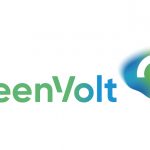Fixing the future – The role of human agency in Portugal’s entrepreneurial renaissance
An expert on Portugal who has been to Lisbon many times and is familiar with the country’s history, Andrew Keen delivered a scathing attack on the Silicon Valley technology giants in Lisbon this month at the Lisbon Investment Summit. Keen argues that the irresponsibility and greed of Google, Amazon, Apple, Facebook and Uber are destroying our agency and jobs. It is time to take back that agency through regulation.
The Portuguese have always had a great capacity for innovation and initiative. After all, Portugal was one of the main European countries that began the radical transformation of the world by constructing the global network, the discovery of the so-called new world through a combination of technology (sailing ships), and human initiative, discovering new worlds that European countries had not know existed before.
It is an example of the role of agency* in human history, which is the ability of human beings to make and shape history, to define who we are, to make the world what we would ideally like to think of as a better place.
Keen says that agency* is the thing that defines us, that shapes human history, but also undermines human history in many ways. Agency has also ennobled a people — if you want to take a positive spin on Portuguese history, a country that was distinguished by its navigators and now by its tech startup entrepreneurs.
The internet, the Internet of Things, Artificial Intelligence and Blockchain – all these new technologies are about to massively change the world in the same way that the internet has changed the world over the past 25 years.
“There is a darker side to Portuguese agency that Lisbon government officials conveniently leave out. Alongside the history of Portuguese agency and heroic navigators and the discovery of the ‘new’ world, post-medieval Portuguese history is a history of colonialism, slavery, exploitation and terrible wars” says Keen.
Of course, Portuguese sailors cannot be blamed for this, neither is Keen suggesting that the Discoverers knew that they were creating a history of slavery and exploitation and colonialism, but “that is the reality”.
Every great transformation, empowered by technology and human agency, combines both the best and the worst in the human condition. Just as that was true at the time of the Discoveries, so it is true today when it comes to digital.
It was also true in the Industrial Age – “the best and worst is being revealed to us in today’s digital revolution” he says.
“Back in the 1990s, as a startup entrepreneur in Silicon Valley, I too wanted to be rich and also make the world a better place. I thought this technology — the digital technology which in the 1990s was the internet — would enable agency. It would enable us to realise our best qualities as human beings, knowing that this technology was going to revolutionise the world, in the same way that industrial technology did in the 19th century” Keen explains.
“I thought technology would create a level playing field, a place where small-time entrepreneurs and startups would allow them to realise their creativity and agency. It would empower the small guys and overturn the traditional hierarchies on their heads” he ponders.
The Old World would be replaced by the New World and the New World would, by definition, be more democratic, more engaging and more empowering. Keen thought this technology would enrich democracy, would allow us to talk to one another in a more civil way. That a global network would be created that would allow people in Lisbon to talk to people in Lagos. “I thought the global village would benefit humanity”.
“I thought it would be great in terms of work and for work to be creative, to realise ourselves, enable a renewal of culture, that everyone would have the technology, the means and power to express themselves, to make music, write on blogs and to post on the network” Keen continues.
Keen imagined that it would result in a new 2.0 Renaissance, that it would empower uniqueness and individuality. That it would free us. Karl Marx, in the 19th century, believed that industrial technology would liberate us and empower us, enlighten us and ennoble us. “He was, of course, wrong. I was wrong in what I believed in the 1990s”.
Human agency — what has gone wrong?
So what has gone wrong in terms of human agency? Keen says that technology is now shaping us rather than us using it to shape our world.
The world of multi-national, multi-billion Silicon Valley companies like Google, Apple, Amazon and Facebook are the entities that have the real power.
“I guarantee the vast majority of startups will fail, partly because it is in the nature of startups to fail, but also because the terrain of the digital world is controlled by these trillion dollar multi-national digital technology giants whose business is to increasingly crush startups, or appropriate their ideas, or sometimes buy them” says Keen.
The level playing field has not been realised. It has been replaced by a dramatic terrain of inequality. “Today, the nine wealthiest billionaires in Silicon Valley are worth about the same as the poorest 2.5 billion people on earth.
“Inequality, the very thing that I thought the digital era would change, has been compounded by the Digital revolution. This is not because technology is bad, or even that Silicon Valley is bad. It is because of the network effect, that the laws of the network result in a winner-takes-all economy, and increasingly in cultural terms, a winner-takes-all culture” he points out.
Like the world of Twitter, where you have a handful of people with millions of followers and the rest of us with a few hundred.
A crisis in democracy
It is the decimation of the middle that can be seen across the economy; from the digital economy, literal digital economy into the cultural economy and many other spheres of life, including democracy.
Keen says, “What we are seeing is a crisis of democracy, from Trump to Erdogan, from Central Europe and Hungary to Portugal, Russian and China, you see the resurgence of authoritarianism, partially though their control of digital tools”.
“We see the decimation of civic culture through social networks, the way in which elections have been corrupted, from Brexit to the United States, to elections in central and southern Europe through fake news and Putin’s trolls who have destroyed the very democratic infrastructure” says Keen.
“We did away with these gatekeepers who were supposed to be democratising and enlightening, and what do we find? That the world is being run by Putin’s minions who control buildings full of trolls in St. Petersburg and Moscow.”
What about work? Surely the internet has enriched the experience of work, with the shift from the old industrial proletariat to people who sell their labour over social networks, sharing platforms like Uber and Air BnB. Surely that is a good thing and in a sense Keen says it is.
But Keen points out that the reality of this new work environment is that Uber drivers are mostly being paid less than the minimum wage; that a handful of Uber executives and technologists become billionaires. The sharing economy is anything but about sharing.
The architecture of this new economy is only compounding inequality and injustice. In San Fransisco, which is the epicentre of all this architecture, you can barely walk along the pavement because of the homeless problem in a city where there are no public bathrooms.
The Uber drivers are so poor they can no longer afford to live in San Francisco, partially because Air BnB rents are driving the cost of rental up. The result is that they are sleeping in their cars all over the city.
On the horizon is a bigger problem: the problem of AI. We have invented technology that replaces us as human beings in the workplace. Behind SMART cars and SMART cities is the fundamental employment crisis of the 21st century. Keen says we have created technology that replaces us.
“Increasingly, the dominant jobs are going to become redundant. Most economists are deeply pessimistic. Many of them predict that up to 50% of jobs that we take for granted will be replaced”.
Finally, we have a crisis of freedom with surveillance capitalism. The dominant platforms give away their technology and services whether its search engines or social media platforms, so we go on Facebook, we use Google incessantly and it’s free and seems like an amazing deal.
But the free economy that is being created by Silicon Valley is anything but free. “We are paying for it with our spiritual blood and sense of self. Every time we use these services, we are being spied on” warns Keen.
“Our essence, our individuality, the thing that gives is agency, the thing that defines you and your neighbour from everyone else is being revealed to these platforms. It is the idea that these tech giants want to know more about you than you know about yourselves. They will continue to achieve that until they dominate every aspect of the world: SMART cars, SMART cities and even SMART bodies” Keen warns.
Fixing the future
Keen asks what should be done? “How do we fix the future, because at the moment the future is broken”.
“We do two things well as human beings. The Portuguese know this. We break the future but we are also able to fix it. That is what we do as human beings” he says.
Mankind has power and mankind created this technology. AI does not have any kind of consciousness and it never will (of course, in the absence of a crystal ball, that remains to be seen). We shape it, we programme it, we make it what it is. Keen says we have to fix this mess, and above all else, we need to seize back agency and push back against these ubiquitous technologies which are addictive, against these dominant giant companies that know more and more about us. Against these companies that are rearchitecting global capitalism to create an increasing gulf between a tiny group of billionaires and millionaires and everyone else who is increasingly earning a minimum wage.
What is to be done?
1) Regulation – the regulatory pushback against Silicon Valley has come from Europe in four important areas: antitrust — forcing these companies to pay tax. Fine media giants for publishing fake news and malicious nonsense. The GDPR (General Data Protection Regulation) is a beginning in handing back power to all of us and giving us power over our data. Keen says there must be real competition in digital markets, so governments have to update anti-trust laws and enforce then rigorously.
2) Innovation – Empower the entrepreneurs and with the second wave of innovation (Industry 4.0 & 5.0) to be more responsible. Both investors and entrepreneurs need to take responsibility and learn from the past and people like Mark Zuckerberg. This means protecting the public sphere on which all democracies depend. Facebook, Twitter and Google should be treated like the media companies they have become and held accountable for the harm they do.
3) Education – rethinking education systems to teach kids about the things machines will never be able to do, and start planning a new social security system that will provide a safety net for all those people whose lives will be disrupted by automation.
4) Taxation – Tech companies need to be taxed appropriately and forced to pay taxes in the jurisdiction in which their profits are earned.
“Entrepreneurs have to take responsibility for what they are creating with platforms that are genuinely sharing and not exploitative. They have to create search engines that are not surveillance machines. They have to create social networks that cannot be used by tyrants like Putin to exploit Western democracies.
“That is your responsibility. Regulation is meaningless without innovation, and we know that from the history of the Soviet Union. Regulation alone is a catastrophe. The best regulators create the conditions for innovation with more consumer engagement” Keen concludes.
*Agency (sociology) In social science, agency is the capacity of individuals to act independently and to make their own free choices. By contrast, structure is those factors of influence (such as social class, religion, gender, ethnicity, ability, customs, etc.) that determine or limit an agent and their decisions.










